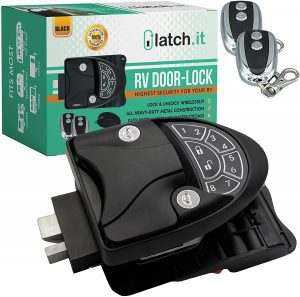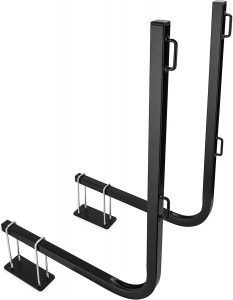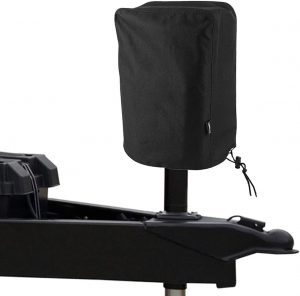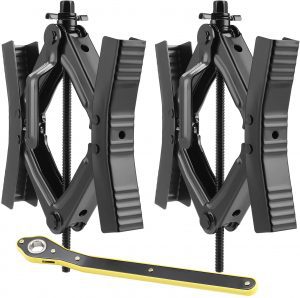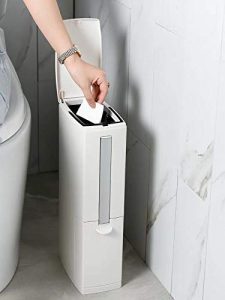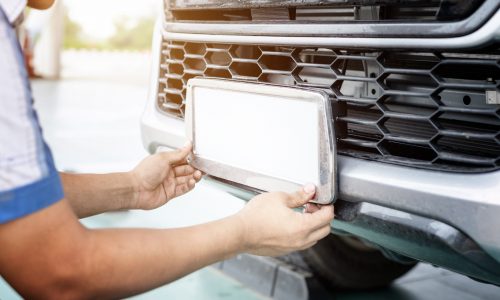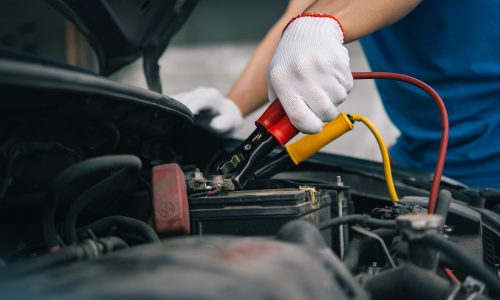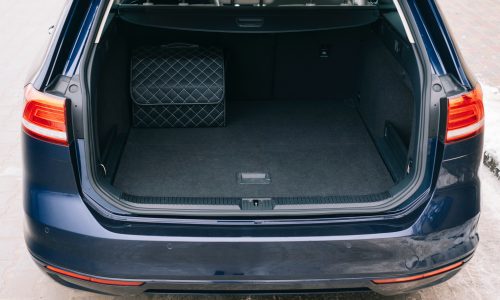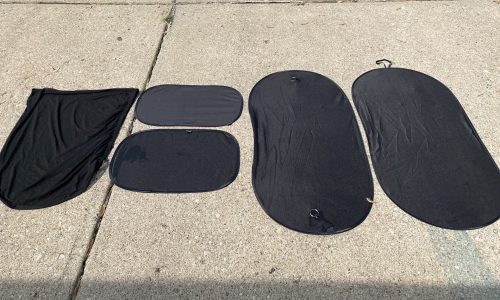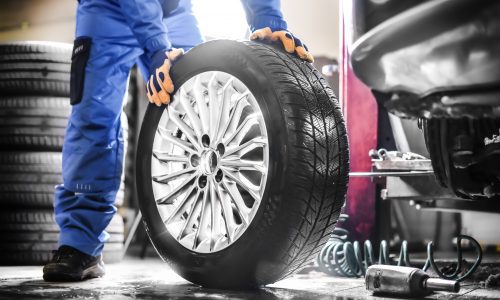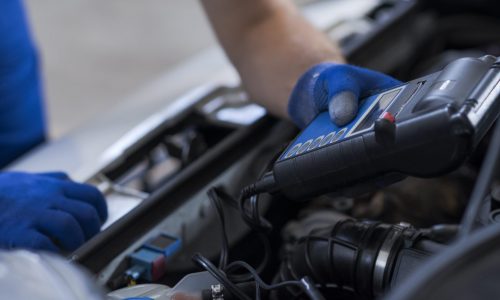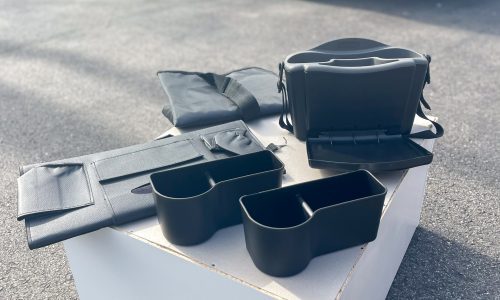The Best RV Accessories
Check out the best-selling automotive products on Amazon.com
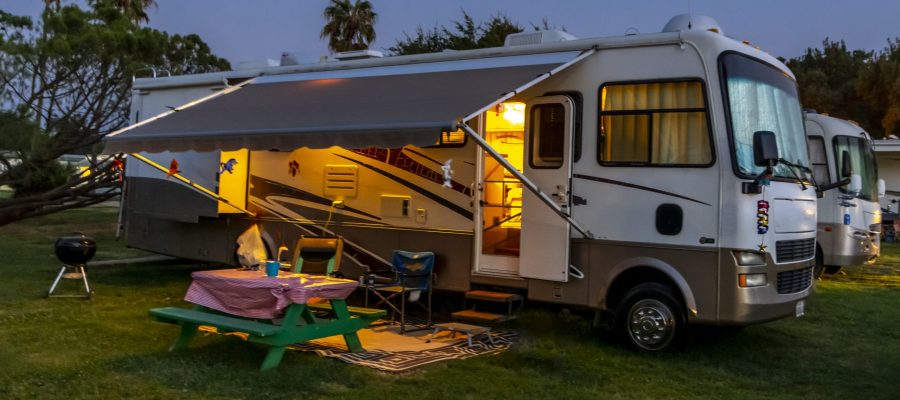
Our Review Process
Don't Waste Your Money is focused on helping you make the best purchasing decision. Our team of experts spends hundreds of hours analyzing, testing, and researching products so you don't have to. Learn more.
Our Picks For The Top RV Accessories
Take your RV's security to the next level with this 100% metal lock featuring keyless entry. It is waterproof and has a backlit keypad. You'll get a door lock, two key fobs, batteries, two mechanical keys, a protective gasket, a screwdriver, mounting hardware and an owner's manual. Make sure to check for compatibility.
Extra DurableThis backlit, keyless RV lock is 100% metal to ensure it will hold up even after years of use.
When you don't have a sewer connection, you need a tote tank. This tote tank carrier mounts to the bumper of your RV so it's available whenever you need it. The larger wheels, powder-coated steel build and zinc-coated hardware give it a durability that you can rely on. It's compatible with most holding tanks on the market.
Rolls EasilyThe large wheels on this tote tank carrier make it easy to transport, even across bumpy terrain.
Keep your RV's tongue jack safe from the elements with this durable black cover, which is made from 600D polyester for extra strength. The drawstring is adjustable on both sides and has a barrel cord lock to hold it in place. The seams feature polyurethane weatherstrips to protect your jack against any kind of weather.
Weatherproof ProtectionThis protector is waterproof and durable to offer reliable protection for your RV’s tongue jack.
Quickly secure your RV, camper, or trailer to prevent rocking and shifting with these wheel stabilizers. These retract from 3½ inches down to 12 inches, allowing it to fit even the tightest of wheels. You'll get two steel wheel chock scissor stabilizers in each box, which are simple to install using the included ratchet wrench.
Easy to UseThese wheel stabilizers are easy to install and will stay in place once you’ve set things up.
Buying Guide
If you travel by RV, travel trailer, camper or any other mode of transportation that you can set up at a campground, there are many ways to get more out of your experience. Chances are, your camper came with some helpful gadgets to make your life on the road easier, but there are also some handy items you can add to your RV to upgrade it as you learn what works for you.
At one time, you’d have to go to a specialized camping retailer or RV showroom to get accessories for your camper, but that’s no longer the case. RV accessories are readily available online from a variety of popular retailers. You may also be able to find some at local department stores, especially if you’re looking for an item that can be classified as general camping supplies.
Safety is a top priority when stocking a new camper. You’ll need items that will stabilize your RV once it’s parked, as well as keep occupants safe during weather events. If lightning strikes or a strong storm blows through, is your camper equipped to handle it?
Once safety issues have been addressed, it’s all about convenience. RVs pack many features in as little room as possible, so the accessories you’d buy for your home or office likely won’t do. It’s important to consider limited space and buy items in compact versions.
Another consideration is movement. Any unsecured belongings will inevitably be jostled in transit, so it’s important to make sure everything can either be packed away or won’t move around when you hit bumps in the road. Organizers, nets and bars are your friends with any travel vehicle, and many RVs now come equipped with those features in place. Even then, though, you’ll likely need to add a few stay-put items of your own.
What to Look For
- An extra lock can help secure the door of your RV. Sure, any camper comes with locks of its own, but you can buy a separate lock that boosts security and even provides keyless entry.
- If you opt for a lock for your camper, make sure it is backlit; a lit keypad will make finding those numerical buttons at night much easier.
- Any outdoor item for your RV needs to be weather-resistant. Your camper will be subjected to rain, storms and possibly ice or snow, whether it’s parked in your driveway or at a campground.
- One of the biggest challenges of any RV is space. Campers are compact to make transportation easy, but this also gives you limited room for accessories. Some items are built specifically to help save space, featuring slimmer, shorter profiles than what you’d buy for your home.
- Recreational vehicles can vary in size and components. Pay close attention to compatibility with any accessory you buy.
- Installation can be tricky with some accessories. Before you buy, make sure it’s something you can do yourself, and that you have the tools you’ll need to install items properly. Check that the product comes with directions if you can’t find them online.
- One problem with RVs is that you don’t have excess storage for tools or accessories, unlike at home. Look for accessories that are designed for easy storage.
- RVs tend to be exposed to the elements, even when they’re kept sheltered between uses. Covers for areas like your tongue jack can help you protect your RV from the elements and potentially extend its lifespan.
- Some accessories are an essential part of parking at a campsite. If you plan to camp in areas without access to sewer hookups, for instance, you’ll have to use a tote to transport waste to the disposal area. A wheeled trolley can help with this. You may also want to consider wheel stabilizers, which are vital to keeping you and your loved ones comfortable once you’ve parked.
More to Explore
Motorized campers may have surged in popularity during the pandemic, but they’ve been around for more than a century. The first line of these recreational vehicles rolled out in 1910 and constituted a much more primitive version of what you see today. Early RVs didn’t even have bathrooms. Owners had to rely on built-in chamber pots or the great outdoors instead.
In the years to follow, though, campers began to grow in popularity, creating a group of enthusiasts known as “tin can tourists.” This group got their name for their habit of heating food in tin cans on gas-powered stoves on the roadside. By the 1930s, this group had grown to 150,000 members and had their own song and secret handshake.

